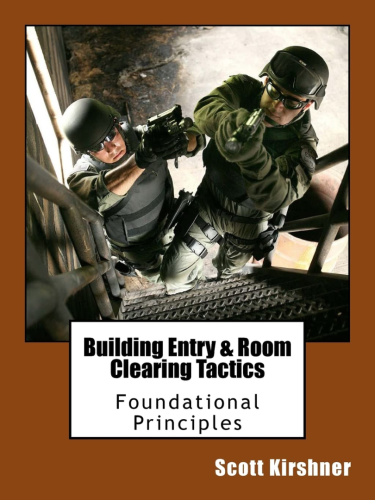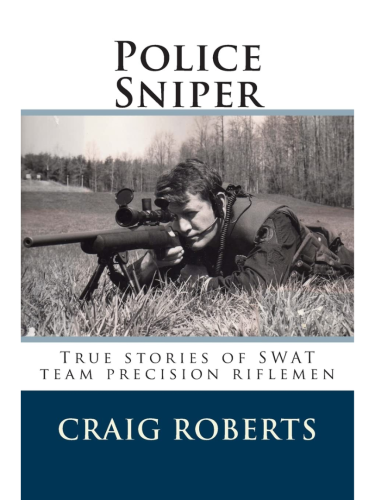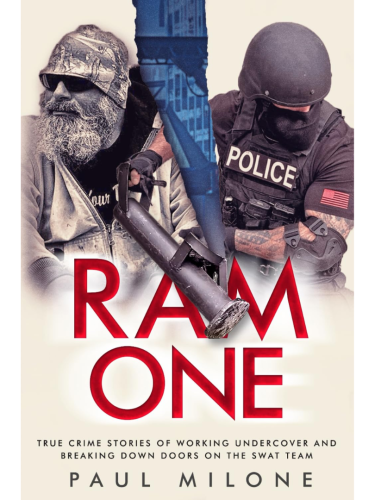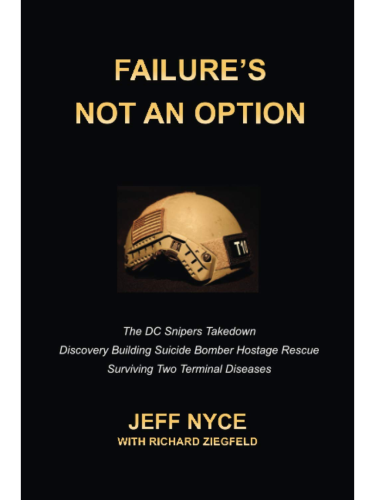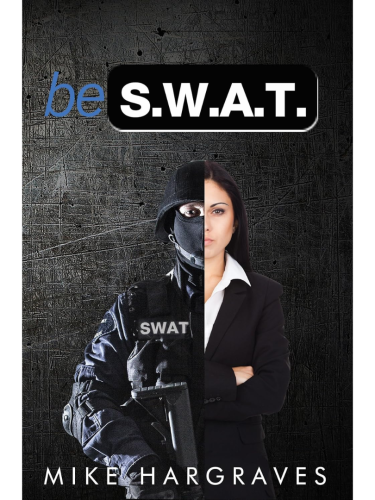From the Police1 Editors:
Law enforcement offers a wide range of career opportunities beyond the role of patrol officer. Whether you’re interested in investigative work, community engagement, or specialized units like SWAT or cybercrime, this A-Z guide provides a comprehensive overview of police job titles and their responsibilities.
Explore the different paths within law enforcement, from entry-level positions to advanced roles, and learn about the qualifications and skills required for each. This guide is an invaluable resource for anyone considering a career in public safety or looking to understand the structure of modern policing.
Original article below:
When it comes to law enforcement, it really does take a village. From the police officers patrolling the streets all the way to the advocates helping crime victims navigate the criminal justice system, there are numerous jobs that dedicated men and women carry out each and every day.
Here’s a roundup of some law enforcement assignments that help protect our communities. (Your challenge: Spot the fake titles, then tell us the job titles we missed. Email editor@police1.com.)
Animal Control Officer: Animal control officers may work under the umbrella of a law enforcement agency or may work for an independent animal control or humane society agency. Rarely, they are armed and authorized to make arrests. More often, they issue citations to irresponsible pet owners.
Armorer: Armorers do preventative maintenance and repair of firearms used by their agency’s officers. Being an armorer in a law enforcement agency is usually the collateral duty or a regular officer, meaning you have a regular assignment and do the armorer chores as time allows.
| Be part of the conversation! Register for a Police1 webinar to hear from experienced officers and learn about the latest developments in law enforcement.
Bailiff: Courtroom security officers are called bailiffs. They may be sheriff’s deputies or police officers assigned to bailiff duties, or employees of the court itself. Bailiffs maintain order in the courtroom, make arrests at the direction of the presiding judge, and escort prisoners between the jail or court-holding cells and the courtroom.
Bike Patrol: Cops on bicycles can often respond to emergencies more quickly than those in cars when traffic is congested, or the location of the call is far from the pavement. Bike patrol requires a high level of physical fitness. It’s a popular assignment in a city or county law enforcement agency, and competition for a bike patrol slot can be intense.
Border Patrol Agent: Patrol agents work for the U.S. Border Patrol. Most are assigned to a station on the border between the United States and Mexico, with a smaller number on the Canadian border. Patrol agents perform active patrols mounted in trucks, sedans, off-road vehicles, and on horseback, looking for people who have crossed the border unlawfully. They often perform rescues of immigrants who have been abandoned without food, water, or maps in inhospitable areas.
Learn more: How to become a border patrol or ICE agent.
Chief: The chief of police or sheriff is the top executive in a law enforcement agency. Chiefs are usually appointed by the local government’s council, where sheriffs are elected. This role is usually attained toward the end of an officer’s career, and after being promoted multiple times.
Dive deeper: So, you want to be a police chief?
Civilian Crash Investigator: A Civilian Crash Investigator is a non-law enforcement professional who specializes in examining and analyzing vehicular accidents. Typically employed by insurance companies, law firms, or independent investigation firms, their primary role is to determine the cause and circumstances of a crash. They analyze the crash scene, study vehicle damages, gather evidence and sometimes reconstruct the accident scenario. Additionally, they may interview witnesses and review police reports, medical records and any available video footage. Their findings are vital for resolving insurance claims, settling disputes, and providing expert testimony in legal proceedings related to the accident.
Code Enforcement Officer: If a property owner’s grass is not properly mowed or their house does not bear legible address numerals, a code enforcement officer may visit and either advise them or issue a citation. They handle violations of local laws which do not usually escalate to the criminal level. Many code enforcement officers are former law enforcement officers who aren’t ready to fully retire.
Listen: Why code enforcement matters.
Commander: Not all law enforcement agencies have commanders. When the rank exists, it’s usually senior to the rank of captain. Commanders oversee a division of their agency. The division may be geographical, e.g., “South District,” or operational, such as supervising all detectives or traffic officers.
Constable: Constable is the job title for most line police officers in the United Kingdom and Canada, but there are also constables in the United States. They most often work as process servers for the courts, delivering subpoenas, criminal complaints, and lien notices on people involved in an ongoing case. In Texas, some constables work in uniform and drive patrol cars with police lighting and sirens, performing traffic enforcement and drug interdiction.
Correctional Officer: Correctional officers work in a jail or prison. Jails are city- or county-level, while prisons are state-level. They supervise prisoners, provide entry/exit and perimeter security, and escort prisoners to court and medical appointments. The training course for correctional officers is usually shorter than for police officers, and some agencies will hire correctional officers as young as age 18.
Related: 3 helpful hints for the first days on the job as a correctional officer.
Crime Scene Investigator: Crime scene investigators (CSIs) respond to premises where a crime has taken place and collect evidence on site. The job often entails dusting for latent fingerprints, photographing prints and evidence in situ, and packaging physical evidence for transport. The CSI role may be a collateral assignment for a police officer or deputy, or a full-time, usually non-sworn, position.
Related: How case-based learning can build enthusiasm for a forensic science career.
Crisis Negotiator: Officers with specialized training in assessing and communicating with people in crisis to resolve a high-risk situation. They work closely with tactical officers in resolving hostage or barricaded subjects.
Customs Officer: Customs officers work for Customs and Border Protection (CBP) at U.S. ports of entry, examining documents of people entering the United States and inspecting cargo vehicles and containers. This is a uniformed, sworn position. Some officers work with dogs specially trained to detect illegal drugs, explosives, and other contraband.
Defensive Tactics Instructor: All officers who engage in contact with the public get training in defensive tactics, including techniques in counterassault, weapon retention, and arrest and handcuffing techniques. These techniques must be both effective and in compliance with their agency’s use of force policies. Defensive tactics Instructors are regular officers who teach as a collateral duty or in a permanent or temporary assignment. Officers assigned this duty are typically in top physical shape and have a martial arts background.
Related: 7 investments worth every penny for defensive tactics instructors.
Deputy: Deputies are the line employees of sheriffs’ and marshals’ departments. They derive their police powers from the elected sheriff or appointed marshal (marshals are the security and enforcement component of the courts). Deputies may perform all the functions of a city or state police officer, but often in a more rural setting. They may supervise prisoners in a county jail or provide security in courtrooms.
Detective: Detectives investigate crimes that are more complex or prolonged than patrol officers or deputies can handle. A small agency detective may handle all types of investigations, where a detective in a large department handles crimes of a particular type, such as auto theft or burglary. All detectives start their careers as uniformed patrol officers or deputies where they learn investigative techniques. In many agencies, detectives work the assignment for only a few years before they return to patrol.
Related: Making the transition from patrol to investigations.
Drug Recognition Expert: Most drug recognition experts work in uniformed patrol. They undergo special training to recognize the effects of alcohol, marijuana, opiates, stimulants, and hallucinogens. Many cases involve people driving under the influence of one or more of these drugs. When suspects refuse to provide a blood or urine sample to analyze for the metabolites of these drugs, the drug recognition expert may serve as the affiant to obtain a seizure order from a judge to compel the production of a specimen. They can testify in court as to whether a defendant was under the influence at the time of their arrest. This is where the “expert” label comes in, as the officer must be qualified as an expert witness to testify as to an opinion.
Evidence Technician: Evidence technicians usually work in the evidence section of a police or sheriff’s department, managing the inventory of items seized during an investigation. These items may be as small as a gram of an illegal drug or as large as a motorhome. They often package drugs and other items to be sent to a crime lab for analysis, so they need to be skilled in proper handling and packaging so as not to degrade the evidentiary value of the item. Evidence technicians occasionally work in the field as crime scene investigators, marking and collecting evidence from a crime scene.
Explosive Ordnance Disposal Technician (EOD): EOD technicians respond to scenes where a bomb or other hazardous explosive devices is located. EOD technicians portrayed in entertainment media often defuse devices like this on site, but more commonly they are “rendered safe” (exploded) on site or transported to a location where they can be exploded safely. This is a collateral duty of police officers and deputy sheriffs in all but the largest agencies. Most EOD technicians are sent to the FBI Hazardous Devices School at Redstone Arsenal for training.
FBI Special Agent: The FBI is the premier investigative agency of the U.S. Government. FBI Special Agents typically begin their careers assigned to a squad that investigates bank robbery, espionage, financial crimes, or organized crime, among others. Later in their career, they may be assigned to a narrower specialty or promote to supervise other special agents. While the minimum requirement for new Special Agents is to be at least 23 years of age with a bachelor’s degree and three years of work experience, most successful applicants have advanced degrees and/or considerable investigative experience.
Field Training Officer: Field Training Officers (FTOs) are experienced uniformed patrol officers who supervise and evaluate officers who have started fieldwork after graduating from the police academy. They work side by side with the new officers for around four weeks at a time. FTOs document virtually everything the rookie officer does, producing daily and weekly written evaluations. Most new officers cite their field training experience as the most critical portion of their training, far exceeding what they learned in the police academy. Learn more: 12 benefits of becoming a field training officer.
Forensics Analyst: A forensic analyst, sometimes called a criminalist, performs a scientific examination of evidence seized by law enforcement officers in the field. Most forensic analysts are not sworn officers. They work in a laboratory and have advanced degrees in chemistry, molecular biology, physics, or toxicology. They often testify in court as to their analyses, laying the foundation that will permit the evidence and analysis to be entered into evidence at trial.
Gang Investigator: Gang investigators may be detectives or uniformed officers. They keep tabs on the membership and activities of street gangs. This often involves crimes of trafficking in illegal drugs and violence perpetrated against rival gang members or citizens who have given information about the gang to police. Because gang membership is often predicated on race or ethnicity, fluency in a foreign language can be a critical skill.
Homicide Detective: Homicide detectives investigate crimes where a victim has been killed or severely injured unlawfully. They are often regarded as the top-level investigators at their agency. It can take many years of experience in uniformed patrol and investigations to become a homicide detective.
Instructor: A career in law enforcement entails frequent training in new techniques and policy and refresher training in old ones. Most instructors are drawn from the ranks of the agency, or “borrowed” from other local departments. Most training assignments are collateral, meaning the instructor has another regular job when he is not training someone. Larger agencies may have full-time trainers, and state training agencies may employ people who instruct full time. Trainers are expected to have both academic preparation and practical experience in their area of expertise.
Intelligence Analyst: Intelligence and crime analysts compile and scrutinize crime reports and other data to help identify crime trends and possible perpetrators. They may be able to link crimes that occurred in distant areas and at different times and dates to show that the crimes are likely the work of a single suspect. Most intelligence and crime analysts are not sworn officers but do have experience in reading and classifying crime and arrest reports.
Investigator: Most police investigators are called “detectives,” but there are other investigative assignments in law enforcement. Background investigators review the histories and qualifications of people who are applying for employment. Internal affairs investigators investigate complaints of misconduct and other suspicious activities occurring within their agencies. Most police investigators will have substantial experience in patrol and investigations before they are assigned to one of these specialized areas.
Jailer: Jailers typically work for city police departments that maintain their own jails. Most of the inmates they supervise will be in pre-trial detention or serving short sentences for violation of city codes. Jailers work in uniform but may not be armed or have police powers when they are off duty. This job requires considerable “people skills” to be successful.
K-9 Officer: K-9 (canine) officers serve as handlers for their specially trained dogs. In patrol, the dogs are trained in tracking and taking down suspects who are fleeing or resisting arrest. These or other dogs may also be trained in the detection of illegal drugs or explosives. In a U.S. Customs environment, dogs are trained to recognize the odors of vegetable matter and contraband birds, reptiles, or other animals a traveler is trying to conceal and smuggle into the country. Assignment as a K-9 handler usually requires several years of patrol or other operational experience.
Police1 resource: 8 investments worth every penny for K-9 officers.
Lieutenant: Police lieutenants are middle managers, overseeing first-line supervisors with the title of “sergeant” or “corporal.” They will take an active role in operations only in smaller agencies that can’t otherwise staff all patrol shifts with officers or deputies. Promotion to lieutenant is usually competitive from the ranks of experienced sergeants.
Marine Patrol Officer: A Marine Patrol Officer, also known as a Water Patrol Officer, is responsible for enforcing laws and regulations on bodies of water. Their duties include patrolling waterways, ensuring boater safety, enforcing boating, fishing and wildlife laws, and often conducting search and rescue operations. They may also be involved in investigating accidents or crimes that occur on or around water, such as boating accidents or illegal fishing activities. Marine Patrol Officers are often skilled in navigation, emergency response and water safety education, utilizing these skills to ensure a safe and lawful environment on waterways.
Motor Officer: Motor officers are assigned primarily traffic enforcement, as the motorcycles are more maneuverable and capable of higher speeds than patrol cars. They may do escorts of funeral processions or parade participants. Most aspiring motor officers must first complete a difficult motorcycle training course. Motor officers have the added perk of being able to take their motorcycles home and ride them to and from work.
Narcotics Officer: A narcotics officer or detective investigates illegal trafficking in contraband drugs and other illegal substances. They may work in plain clothes as opposed to the suit and tie of the mainstream detective and have a hairstyle and/or facial hair that would otherwise violate their agency’s grooming standards. Less commonly, they may work in an undercover role with identification and other supporting documents in the name of the fictional person they are pretending to be. Learn more: 5 keys to becoming a highly successful narcotics officer.
Officer: A generic title that describes all operational personnel, from police officers to parking violation attendants. Officers are usually, though not always sworn, carrying firearms and having arrest powers.
Patrol Officer: Patrol officers are typically the backbone of general service law enforcement agencies. Newly hired officers have their first assignment in patrol and may work in that assignment for their entire careers. Nearly all crimes are first discovered or attended by patrol officers, so there is considerable diversity in the experience gained in this assignment.
Police Officer: The rank of police officer is one that takes in all sworn non-supervisory employees of a police department. The analog of this assignment in a sheriff’s department is “deputy sheriff.” Police officers work primarily in uniformed patrol, but may also be assigned to training, administration, some investigative assignments, or community relations.
Probation and Parole Officer: Probation officers supervise offenders who have been sentenced to probation instead of a jail term. Parole officers oversee prison inmates who have been released before they have served their entire sentence. In some states, these roles are combined, and they may have the title of “Community Corrections Officer.” These officers meet with their offender “clients” to ensure they follow the conditions of their sentences. These conditions may include working at gainful employment, abstaining from the use of alcohol or illegal drugs, not associating with other offenders, and paying restitution.
Learn more: 9 myths about probation officers.
Quartermaster: The quartermaster of a law enforcement agency manages the agency’s consumable and/or assigned assets, such as uniforms, firearms, report forms, badges, and body-worn cameras. This is usually a non-sworn position. Being a quartermaster entails a high level of trust, as they may have millions of dollars of materiel under management.
Police1 resource: How to buy quartermaster/inventory management software.
Ranger: Texas Rangers are elite investigators who work for the Texas Department of Public Safety, but rangers who work for the federal, state, or local government usually patrol parks and wilderness areas for disruptive or unlawful activity. They often do double duty as naturalists, explaining the particulars of wildlife and/or vegetation in the park. Most rangers are sworn, armed, and uniformed, but some may rely on local police for enforcement needs.
Learn more: How to become a Texas Ranger.
Records Specialist: Records specialists work with crime and arrest reports, arrest warrants, mug shot files and the computerized records systems where these items are registered and tracked. These are usually non-sworn positions that do not require a college degree. Records specialists need to have meticulous work habits. Misfiled or lost records can result in a criminal case being rendered impossible to prosecute.
Reserve officers: Reserve officers are trained and sworn and work alongside regular officers as their personal schedule allows. They are required to work a minimum number of shifts and are paid a stipend or hourly wage to compensate them. Regular in-service training is required. As officers advance in their reserve careers, special assignments are available to them on a competitive basis like regular officers. They are a valuable link between the department and the citizens. They wear the same uniform and have 24/7 police powers.
School resource officer: A School Resource Officer (SRO) serves as a link between law enforcement and the school community, fostering a safe and secure learning environment for students, staff, and administrators. The SRO’s duties encompass three main areas: law enforcement, education and counseling. As a law enforcement officer, the SRO is responsible for maintaining order and safety, responding to incidents, and enforcing laws on school property. As an educator, they may teach classes on topics such as law, crime prevention, and substance abuse. As a counselor, they often serve as a mentor and resource for students, helping to handle issues like bullying or family problems. The SRO’s overall aim is to create a positive and secure atmosphere conducive to education while building trusting relationships between students and law enforcement.
Learn more: The first five things an SRO should do
Sergeant: Sergeants are first-line supervisors of police officers or deputy sheriffs. They work in the field but have a smaller operational role in cases handled by their subordinates. The promotion to sergeant is often the most difficult transition of a law enforcement officer’s career.
Learn more: Why police sergeants are an agency’s MVP.
Special Agent: The best-known employer of special agents is the FBI, where the basic investigative assignment carries that title. Although there are considerably fewer special agents in other branches of government, nearly every major function of the federal government has special agents who investigate violations of laws coming under that branch’s subject area. Some states also employ special agents in their state investigative agencies, but those employees do not have federal-level police powers.
Sky Marshal: Sky Marshals are enforcement officers of the Transportation Security Administration who ride covertly on commercial aircraft as a deterrence to skyjacking or terrorism. In recent times, they assist the aircrew in controlling intoxicated and/or aggressive passengers who refuse to obey the directions of the flight crews. The job can be tedious, as it most often involves sitting passively in an uncomfortable airline seat and crossing time zones several times per day, with nothing unusual happening.
SWAT Operator: Special Weapons and Tactics (SWAT) operators or officers have special training and more advanced weapons and other devices than their regular officer colleagues. They handle service of arrest and/or search warrants where heavy resistance is expected, or arrest situations involving heavily armed suspects. SWAT is a collateral, part-time assignment in all but the largest law enforcement agencies. The assignment requires a high level of physical fitness and especially sound judgment. Most SWAT operators have several years of exemplary patrol experience before being assigned.
Learn more: How to become a SWAT team officer.
Sworn Officer: Sworn officers have badges and arrest authority and carry firearms in the course of their duties. This distinguishes them from non-sworn employees who do not have police powers. Anyone with police powers is a sworn officer, regardless of rank. Law enforcement agencies are often described by the number of sworn officers employed.
Traffic Homicide Investigator: A Traffic Homicide Investigator is a specialized law enforcement officer who investigates serious and fatal vehicle accidents. Their primary duty is to establish the circumstances leading to these incidents. To do this, they gather and analyze evidence from the scene, including skid marks, vehicle damage and any other physical clues. They also interview witnesses, review traffic camera footage and work closely with forensic experts. Furthermore, they are responsible for creating detailed reports and presenting their findings in court. Their work is crucial in determining the cause of the accident, assigning liability and aiding in the prosecution of criminal cases related to traffic fatalities.
Trooper: Trooper is the most common job title of the first-line officers in a state police or patrol agency. Their typical primary responsibility is in traffic enforcement, accident investigation, and investigation of driving under the influence on state and federal highways. Some state police/patrol agencies have investigative components to assist small police and sheriffs’ departments with complex investigations such as homicide and rape. Troopers may be assigned these roles after several years of road patrol experience. Related: Texas Highway Patrol sees largest graduate class ever.
Undercover Officer: True undercover officers play the role of a fictional person around the clock, seven days a week. They may have to move from their usual residence and reside in housing that is consistent with their assumed role. Typically, their only connection with their agency for the duration of the assignment is through a handler who will meet with them periodically. It’s difficult to specify qualifications for this assignment, as those will vary with the identity the officer is to assume. Undercover officers are often confused with plainclothes officers, who maintain an appearance atypical of a regular police officer but carry police identification and go about their accustomed habits when they are off duty.
Police1 resource: New gear helps plainclothes operators stay under cover.
Victim-Witness Advocate: Some prosecutors’ offices employ victim-witness advocates to assist people who are needed to testify at a criminal trial. Common clients include victims of domestic violence and those testifying as witnesses in gang-related crimes. The advocate advises the client on what to expect at trial, makes reports to local police when a victim or witness is being intimidated by the offender or one of their associates and accompanies them to court appearances.
Warden, Conservation: Conservation or game wardens/officers enforce laws governing hunting, fishing, and harvesting of trees for firewood on state-owned or hunting grounds. These jobs are highly coveted by outdoorsmen who grow up to develop a love for hunting and fishing. The work can be hazardous, as virtually everyone they encounter will be armed, frequently drunk, and will outnumber the conservation officer. These officers sometimes staff marine patrols on state-owned watercraft.
Learn more: Conservation officers can be an invaluable resource for police investigations.
X-Man: Mutant humans with extraordinary powers such as shapeshifting, weather control, and the ability to emit deadly energy beams from their eyes. Usually, though not always, works on the side of law enforcement, truth, justice and the American way. Uniformed in spandex.
Youth Programs Coordinator: Many law enforcement agencies sponsor programs for young people as a method of outreach to the local community. Police Explorers and Police Athletic Leagues are typical programs. A youth program coordinator is seldom a full-time assignment. Usually, an officer or deputy is assigned this role as a collateral duty. Learn more: How PAL makes a difference for cops, kids and communities.
Zebra Three: Radio call sign for plainclothes detectives with radically different personalities. They are frequently found driving a distinctively painted Ford Gran Torino through the streets of Bay City.
Which job titles did we miss? Email editor@police1.com.
This article, originally published on September 28, 2021, has been updated with a video and additional resources.


